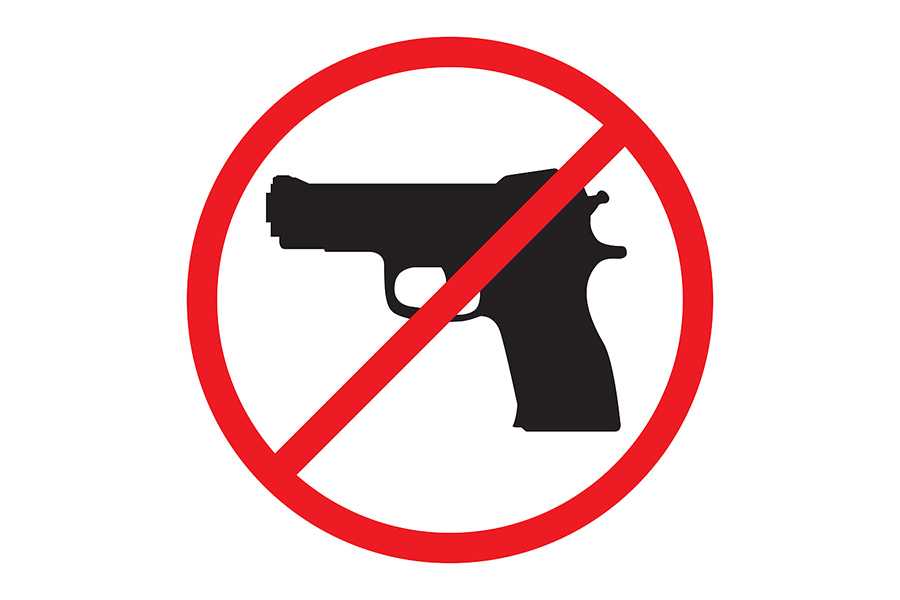Training Teams for Church Safety and Security

An article based on "Safety Team Fundamentals" (a Safety Member Certification training module).[1]
From the Bible
And when Abram heard that his [relative] was taken captive, he armed his trained servants, born in his own house, three hundred and eighteen, and pursued them unto Dan (Genesis 14:14)
"Behold, thou hast instructed many, and thou hast strengthened the weak hands" (Job 4:3).
"I will instruct thee and teach thee in the way which thou shalt go: I will guide thee with mine eye" (Psalm 32:8).
Study to shew thyself approved unto God, a workman that needeth not to be ashamed, rightly dividing the word of truth (2 Timothy 2:15).
Introduction: Training Is Essential
Whether your church's safety ministry is new or has been working for a while, training is necessary. Of course all the members of a new team and members new to the team need to be trained beyond the level of orientation.
In an already established team, regular, on-going training is essential. Like physicians and teachers, safety team members need continuing education. Re-certification is more than reviewing what has already been taught. It is an opportunity to update what was learned with new information, new methods, changes to laws and regulations, and (to the delight of techies) introducing new technology.
On the Web
Risk Strategy Group, Stephenville, Texas - Cody Martin, founder of Risk Strategy Group, advocates for continual training in his article, "Church Safety Team: Regular Training for Optimal Security." Frankly, this long article covers a lot more than just training, but this "extra" material highlights the need for training. Just one quote summarizes the theme of the entire article in a few words: "Regular training is essential for church safety teams to effectively carry out their mission and adapt to evolving threats and challenges." Along the way, he stresses regular training, continuous training, and "in-person practical training drills." In the conclusion Martin stresses the value of a well-trained church safety team.[2]
Tithe.ly, Nashville, Tennessee, May 29, 2020 - The site best known for facilitating tithing online (that was its first product) has also generated other programs that churches can use. The functions of three of them are creating a church app for members, creating a church website, and church management. Besides products and services, Tithe.ly also has a blog: Church Tech & Ministry Resources. One of the articles is "15 Church Security & Safety Best Practices." Best practice #9 is "Create and train your safety team." The author stresses using qualified individuals in the church to train the safety team. It is a good idea if your church has qualified members, however, many smaller churches do not. There are organizations, such as Sheepdog Church Security, ready and qualified to train your team.[3]
Center for Religion and Civic Culture, Los Angeles, California, June 23, 2015 - The Center for Religion and Civic Culture is a part of the University of Southern California. Not long after the massacre at Emanuel AME Church in Charleston, SC, contributor Mark Whitlock wrote "Securing God's Sanctuary - How to Protect Your Congregation from Attacks." In this he stressed that we can make the church a safer place while still being welcoming. He asks the question, "Do we know who is coming inside church doors?" Persons need to be trained to observe visitors, discerning motivation and methods, but this is not the only area of training he recommends. Training in life-saving skills is also important, since medical issues and accidental injuries are more common than violent intruders.[4]
Federal Bureau of Investigation, Washington, D.C., November 9, 2022 - By now we have seen many bulletins from federal agencies with advice on everything from planting gardens to making homes, businesses, schools, and community organizations safer. One such bulletin from the FBI is "Helping Churches Feel Safe." This article is really for other federal agencies, listing some of the information they should share with houses of worship. One of the observations is that members of a congregation feel safer when they know that there are persons present who have been trained to keep them safe.[5]

ChurchLeaders.com, September 3, 2019 - The purpose of ChurchLeaders.com is information and communication within the community of church leaders. The intention of this is to promote a "greater Kingdom impact." Consequently, on its Internet pages is a variety of viewpoints on various issues. One issue on which there is a general consensus is the need for security in churches considering the increase of arson and violence against religious institutions. In "Churches Train Members to Protect the Flock" Stephanie Martin begins with a narrative of how more churches are training volunteer members to safeguard the flock. One of the headings is, "Providing Training Is ‘a matter of caring'." She adds the note that lawsuits can be "prevented" by proper training of security volunteers.[6]
Office of the Attorney General of Texas, Austin, Texas, After 2017 - Not long before the deadly attack on the First Baptist Church in Sutherland Springs, a new law in Texas went into effect allowing churches to have teams of volunteers dedicated to the safety and security of places of worship. There are some specifications of what these teams can and cannot do, including what they are called and how their members are identified. The Texas Attorney General's office composed and published "Security Teams for Houses of Worship: WHAT IS THE LAW?" to explain what the law is and how it applies. One key distinction is between professional and volunteer. Members of a "security" team must be trained to specific standards. The effect of this on church safety is the priority of training.[7]
General Council of the Assemblies of God, Springfield, Missouri, Winter 2009 - In the Winter 2009 edition of Enrichment (a ministry magazine of the Assemblies of God), Richard R. Hammar, legal counsel for the Assemblies of God, answers the question, "Does Your Church Need a Security Guard?" The chronological background of this article includes the 2007 shootings at a mall in Nebraska and at WYAM and New Life Community Church in Colorado. From the perspective of a legal counsel, Hammar considers the potential for lawsuits from having or not having personnel (hired, staff, or volunteer) dedicated to the security of the church, as well as whether the church was aware of the high risk of a violent attack. "Reasonable care" includes "regular training" of security and safety personnel. This also includes training greeters and ushers as spotters who can alert security personnel of suspicious persons.[8]
How to Train a Church Safety Team
The easy answer is to find a training program and have the instructors come to the church. But which program?
First of all, there are many training programs out there for church safety and security teams, even some especially for ushers and greeters and for medical response teams. What is needed is a balanced yet thorough program that covers several areas of safety and security in depth.
Some training programs focus almost exclusively on active shooter response. So consider this: What if you had to engage an active shooter or machete wielder in your church and there were people with serious wounds. Could you treat them to save their lives? This means that your team needs training in both active shooter and mass trauma responses. Backing up a bit, can you spot a killer in time to stop him at the door?

Also consider that the risk of fire has a greater probability with greater potential property loss than an active killer incident. Then too, medical emergencies, accidental injuries, theft, and child abuse are also more likely to happen than active killer situations. And can you defuse potentially violent situations before they explode? How about the legal implications of any force used? Also, don't discount the likelihood of severe weather or a disaster impacting the church. People in churches have been killed and injured by tornadoes, earthquakes, explosions, etc.
Safety Member Certification
The good news is that all these topics are covered in one program, Safety Member Certification (SMC) by Sheepdog Church Security. It consists of eight training modules (classes):
- Safety Team Fundamentals
- Active Shooter Response
- Deescalating Disruptive Persons
- Protecting Children from Abuse
- Basic Use of Force Laws
- Arson and Fire Safety
- Storms and Disasters
- Mass Trauma Emergencies
Students taking each class and passing its test will be certified as safety members for two years. Near the end of the two years, they can take the course again and be re-certified. Re-certification refreshes what has been already learned with updates to information, methods, and technology.
You do not have to settle for just one format of training. SMC has three formats:
Team Certification (church-hosted classes) is the original training format for Sheepdog Church Security. Classes were added until we now have eight. Materials are available for instructors and students, including PowerPoint® presentations. This format is ideal for training a new team as well as for the biennial re-certification.
Online Events (live Zoom classes) is the newest format. Open to both groups and individuals, it began during the Pandemic and has become a popular feature. It is in session through the school year (September - June) with four quarters. Each quarter is a cycle through all eight training modules. SDCS founder Kris Moloney is the instructor. The two-hour classes are held at 3:00 pm Central Time on Sunday afternoons. Like classes in churches, there is the opportunity for class discussion and question and answer sessions. Speaking about classes in churches, an enrolled Safety Team can gather in one place to take the class together with a big screen and a webcam (as long as each member is enrolled).[1]
Safety Member Certification 2023-2024
|
Q1 |
Q2 |
Q3 |
Q4 |
Training Module |
|
|
1 |
Sep 10 |
Nov 12 |
Jan 28 |
Mar 24 |
Safety Team Fundamentals |
|
2 |
Sep 17 |
Nov 19 |
Feb 4 |
Apr 7 |
Active Shooter Response |
|
3 |
Sep 24 |
Dec 3 |
Feb 11 |
Apr 14 |
Deescalating Disruptive Persons |
|
4 |
Oct 1 |
Dec 10 |
Feb 18 |
Apr 21 |
Protecting Children from Abuse |
|
5 |
Oct 8 |
Dec 17 |
Feb 25 |
Apr 28 |
Basic Use of Force Laws |
|
6 |
Oct 15 |
Jan 7 |
Mar 3 |
May 5 |
Arson and Fire Safety |
|
7 |
Oct 22 |
Jan 14 |
Mar 10 |
May 19 |
Storms and Disasters |
|
8 |
Nov 5 |
Jan 21 |
Mar 17 |
Jun 2 |
Mass Trauma Emergencies |
Collateral SDCS Instruction
Sheepdog Church Security has avenues of instruction besides the training modules. These are the Church Security Guide, Sheepdog Church Security Academy (videocasts), Church Security Roll Call (podcasts), andSafety Ministry Training News (Blog).
Church Security Guide
The Church Security Guide (Developing Your Team) has ten articles. Each article is an overview of a church security subject. The first one is on the Security Guide home page, and the other nine are linked on a list:
- How to Start a Church Safety Ministry in 5 Simple Steps
- Introduction to Church Safety and Security
- How to Conduct a Risk Assessment
- Church Safety Team Basics
- Fire Safety in the Church
- Preparing Your Church for Natural Disasters
- Protection of Children and Vulnerable Adults in the Church
- Self Defense Laws, Your Rights and Use of Force
- Disruptive Individuals: How to De-escalate the Situation
- Church Safety Teams and Active Shooter Training
These cover the topics of training modules, some adding information, with 2 through 4 relating to the first module, and the following articles to modules 2 through 8.[9]
Safety Ministry Training News
The Safety Ministry Training site (Sheepdog Church Security Academy), home of the Safety Member Certification program, has a blog (just click on the News tab). It has both weekly and Security Guide articles.[10]
Videocasts and Podcasts
Kris Moloney has a videocast and a podcast (the audio of a videocast is on a podcast). The videocasts are on the YouTube channel Sheepdog Church Security Academy, and podcasts on the SoundCloud channel Church Security Roll Call. Kris covers selected weekly articles, special topics, and interviews with guest experts - there are seven interviews, including two with Simon Osamoh of the SDCS affiliate Worship Security Academy.[11][12]
Supplemental Instruction: Worship Security Academy
Worship Security Academy (WSA) is an affiliate of Sheepdog Church Security. Its founder and CEO is Simon Osamoh, a British-born security specialist with outstanding law enforcement and security experience, especially anti-terrorism in Britain and at the Mall of the Americas.[13]
Among the courses offered by WSA are Church Safety 101, Active Shooter, Conflict De-Escalation, and Threat Detection 101. There are other courses available to those who sign on as WSA members. Benefits include coaching. The WSA training is not only for active safety ministry members, but also church leaders and those in roles at the church such as staff, childcare workers, teachers, group/activity leaders, ushers, greeters, and medical response volunteers.[14]
Of special interest for training in the church are the Decision Decks (the subject of Kris's October 3, 2023 interview with Simon). These sound like flash cards used for school subjects such as arithmetic and vocabulary. Unlike flash cards, these are designed to stimulate critical thinking for church safety-security situations. There's no one answer for any scenario, since these are exercises in problem solving. A person using the cards has to think of what to do in each situation. The benefit is enabling the student to make a decision when needed, avoiding brain freeze.[15]
The five classes of situations are:
- Conflict De-Escalation
- Suspicious Behavior
- Threat Assessment
- Safety Team
- Medical Response
The value of using WSA is deepening your education in security in a way that you can apply in your church.
Drills
Participate in drills and exercises. For those who are armed, spend time on the firing range and in tactical shooting.
Drills and exercises are a key part of training. Going through the motions "puts feet" on what is learned in classes. For example, an impromptu drill is asking another member what he or she sees about a certain person coming in the door. Other possible exercises are role playing verbal de-escalation scenarios, finding concealment or cover in an active shooter situation, taking a shoot-from-cover position in the foyer or sanctuary, spotting concealed weapons, responding to a heart attack, and evacuating mobility-impaired persons.
Scheduling Training
Training doesn't just happen. It takes planning and preparation. This includes scheduling the training sessions. In Kris's videocast of January 17, 2024, he covers what he takes into consideration when scheduling. First, schedule it for weekends, when most team members are not at work. Second, don't schedule classes in the summer or on holiday weekends.
If you want a visual idea of this, look at the Online Events schedule above. Notice there are no classes on Thanksgiving weekend, Christmas, New Year's Day, Easter, or Memorial Day weekend. Also, don't schedule a class when there is a major event at the church.[16]
Conclusion
The role of training is to prepare Church Safety Team members and others involved in church safety and security so they can better protect the flock.
References
- Kris Moloney, "Safety Team Fundamentals," Safety Member Certification, Sheepdog Church Security, © 2020 [https://sheepdog-church-security.thinkific.com/].
- Cody Martin, "Church Safety Team: Regular Training for Optimal Security," Risk Strategy Group, n.d. [https://riskstrategygroup.com/church-safety-team-regular-training/].
- Daniel Berk, "15 Church Security & Safety Best Practices," Church Tech & Ministry Resources, Tithe.ly, May 29, 2020 [https://get.tithe.ly/blog/church-security].
- Mark Whitlock, "Securing God's Sanctuary - How to Protect Your Congregation from Attacks," Center for Religion and Civic Culture, University of Southern California, June 25, 2015 [https://crcc.usc.edu/securing-gods-sanctuary-how-to-protect-your-congregation-from-attacks/].
- Royce Stephens, "Helping Churches Feel Safe," FBI Law Enforcement Bulletin, Federal Bureau of Investigation, November 9, 2022 [https://leb.fbi.gov/articles/additional-articles/police-practice-helping-churches-feel-safe-].
- Stephanie Martin, "Churches Train Members to Protect the Flock," ChurchLeaders.com, September 3, 2019 [https://churchleaders.com/news/358320-churches-train-members-to-protect-the-flock.html/2].
- Ken Paxton (Attorney General of Texas) or Staff, "Security Teams for Houses of Worship: WHAT IS THE LAW?" Office of the Attorney General of Texas, 2017 or later [https://www.texasattorneygeneral.gov/security-teams-houses-worship].
- Richard R. Hammar, "Does Your Church Need a Security Guard?" Enrichment, General Council of the Assemblies of God, Winter 2009 [https://enrichmentjournal.ag.org/Issues/2009/Winter-2009/Church-Security].
- Kris Moloney, Church Security Guide, Sheepdog Church Security, © Copyright 2018 [https://sheepdogchurchsecurity.net/church-security-guide/].
- Kris Moloney, Safety Ministry Training News, Sheepdog Church Security Academy [https://sheepdog-church-security.thinkific.com/pages/security-articles].
- Kris Moloney, Sheepdog Church Security Academy channel, YouTube [https://www.youtube.com/c/SheepdogChurchSecurityAcademy].
- Kris Moloney, Church Security Roll Call channel, SoundCloud [https://soundcloud.com/churchsecurityrollcall].
- Simon Osamoh, "About," Worship Security Academy, n.d. [https://www.worshipsecurity.org/about].
- Sheepdog Church Security affiliate link to Worship Security Association [https://worshipsecurity.vhx.tv/?code=sheepdog].
- Kris Moloney, "Interview with Simon Osamoh WSA (Church Security Roll Call 373)," Sheepdog Church Security Academy, October 3, 2022 [https://www.youtube.com/watch?v=RVasyN7IVg4&list=PLiGluOUZx7Rd5tLJgcNnVPTcmo_hPwbsp&index=7].
- Kris Moloney, "Annual Training Schedule," Sheepdog Church Security Academy, January 17, 2024 [https://www.youtube.com/watch?v=6It4DTCytRA].




